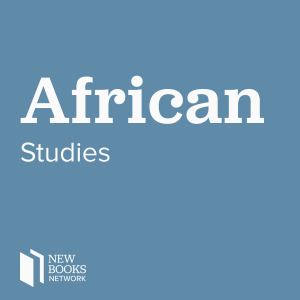
Darcie Fontaine, “Decolonizing Christianity: Religion and the End of Empire in France and Algeria” (Cambridge UP, 2016)
 2018-06-26
2018-06-26
What role did Christianity play in Algeria before, during, and after the war of independence? In Decolonizing Christianity: Religion and the End of Empire in France and Algeria (Cambridge University Press, 2016), Darcie Fontaine pursues this crucial question while refusing the notion of a homogeneous Christianity at any stage after the French conquest of Algeria in 1830. Emphasizing the ways religious ideas and practices were subject to change and deep contestation, the book attends to important differences—between Catholics and Protestants; between institutions and individuals; between Christianity as a tool and ideology of the settler state on the one hand, and a site of resistance to its many injustices on the other.
A social history of theology that considers the interaction between religion and politics in Algeria and France, Decolonizing Christianity traces the movement of Christians, their beliefs and activisms, across the Mediterranean in both directions. While the book tracks broad shifts at the levels of the colonial state and Church hierarchies, its chapters stay close to the experiences and impact of Christians “on the ground” in Algeria. The compelling stories of committed individuals and groups of faith figure centrally throughout: the life and work of Léon-Etienne Duval, the Archbishop (and later Cardinal) of Algiers; the 1957 trial of a group of “progressivist” Christians accused of supporting Algerian nationalism; the thousands of Christians who remained in Algeria after the large-scale “exodus” of settlers in 1962. Beyond the French imperial and postcolonial Algerian context, the book “provincializes” the history of Christianity by exploring the broader international meanings and effects of the Algerian case in the era of decolonization. Circumstances and events in Algeria shaped the practices and policies of Catholics and Protestants beyond the new state’s borders as Christians (and their churches) grappled locally and globally with the challenges of responding to (and surviving) the ends of empires.
Roxanne Panchasi is an Associate Professor in the Department of History at Simon Fraser University. Her current research focuses on the representation of nuclear weapons and testing in France and its empire since 1945. She lives and reads in Vancouver, Canada. If you have a recent title to suggest for the podcast, please send an email to: panchasi@sfu.ca.
*The music that opens and closes the podcast is an instrumental version of “Creatures,” a song written and performed by Vancouver artist/musician Casey Wei (“hazy”). To hear more, please visit https://agonyklub.com/.
Learn more about your ad choices. Visit megaphone.fm/adchoices
Support our show by becoming a premium member! https://newbooksnetwork.supportingcast.fm/african-studies
More Episodes
Create your
podcast in
minutes
- Full-featured podcast site
- Unlimited storage and bandwidth
- Comprehensive podcast stats
- Distribute to Apple Podcasts, Spotify, and more
- Make money with your podcast
It is Free
- Privacy Policy
- Cookie Policy
- Terms of Use
- Consent Preferences
- Copyright © 2015-2024 Podbean.com





